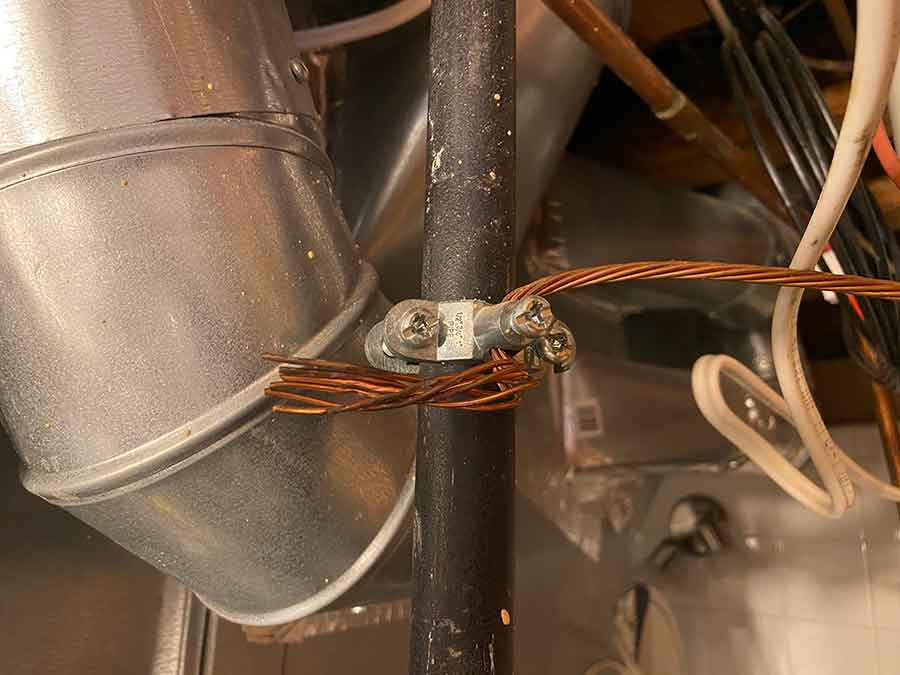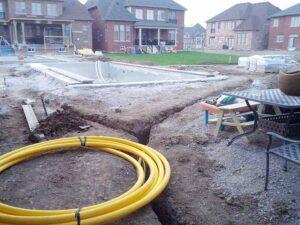Gas line bonding/grounding
“4.7.3 – All interior metal gas piping that may become energized shall be made electrically continuous and shall be bonded in accordance with the requirements of the local electrical code or, in the absence of such, the Canadian Electrical Code, Part I.”
CSA B149.1
Any metal pipes,tubes or conduit in your home have the possibility to carry electrical “potential”. When this potential is present, it can cause shock, sparks or fire damage to equipment. In order to mitigate these risks, all metal pipes should be connected to a grounding point in the home.
Years ago, the process of grounding the gas supply line was to “jumper” the gas line to the copper water supply line of your hot water tank. Since all water lines were copper, the potential carried right through into the ground at the water meter.
With the introduction of plastic or PEX tubing, this copper line may be interrupted for repair or a new branch. When PEX is introduced into a water supply line, it is no longer continuous. Plastic cannot carry current as metal would.
For this reason, all gas supply lines require bonding/grounding directly back to the grounding source. The most common bonding point to the house is the base of the water meter.
A 6 AWG copper wire must be added with 2 clamps to the gas line. The first clamped to the gas supply line and the 2nd clamped to the base of the water meter.
Often Enbridge or gas fitters issue warning tags to correct this condition. Contact us to have it fixed in your home.






